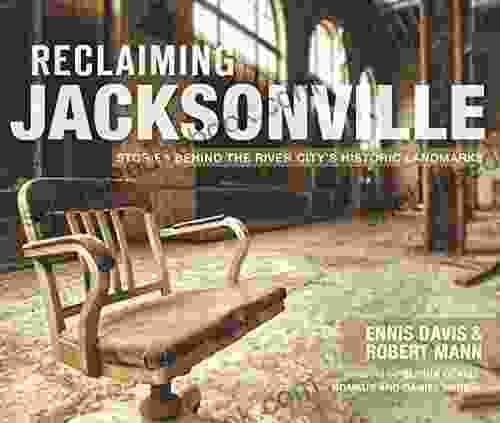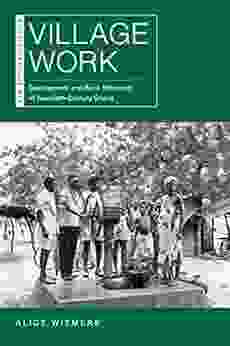Development and Rural Statecraft in Twentieth Century Ghana: A New African Perspective

Ghana's journey through the 20th century was marked by significant developments in its political, economic, and social spheres. This article analyzes the country's development strategies and rural statecraft policies, highlighting their impact on the nation's progress.
Development Strategies
Post-Independence Era (1957-1966): Ghana's post-independence government embarked on ambitious development plans aimed at modernizing the economy. These plans focused on large-scale infrastructure projects, industrialization, and education. Notably, the Volta River Project provided hydroelectric power for the country's aluminum industry.
4.6 out of 5
| Language | : | English |
| File size | : | 2643 KB |
| Text-to-Speech | : | Enabled |
| Screen Reader | : | Supported |
| Enhanced typesetting | : | Enabled |
| Word Wise | : | Enabled |
| Print length | : | 250 pages |
Nkrumah's Socialist Vision (1966-1972): President Kwame Nkrumah adopted a socialist approach to development, nationalizing key industries and implementing agrarian reforms. He established the Ghana Agricultural Development Corporation (GADC) to promote commercial agriculture.
Post-Nkrumah Period (1972-1981): Ghana shifted towards a more market-oriented economy. The government initiated the "Operation Feed Yourself" program to enhance domestic food production. However, economic challenges and political instability hindered progress.
Structural Adjustment Era (1983-1992): Ghana adopted structural adjustment policies under the International Monetary Fund (IMF),which aimed to reduce government spending and promote privatization. These policies had mixed effects on development, with some sectors seeing growth while others faced challenges.
Multi-Party Democracy (1992-Present): Ghana's transition to multi-party democracy brought a focus on participatory governance and sustainable development. The government introduced decentralization and poverty reduction programs. The Millennium Development Goals (MDGs) were adopted as a guiding framework for development priorities.
Rural Statecraft
Early Policies: Ghana's early rural development policies aimed at improving agricultural productivity and rural infrastructure. The Ministry of Rural Development and Cooperatives played a significant role in these initiatives.
Nkrumah's Focus: President Nkrumah's rural statecraft emphasized cooperatives, agricultural extension services, and village development programs. He established the "Return to the Land" campaign to encourage rural resettlement.
Post-Nkrumah Era: Ghana's rural policies shifted towards small-scale agriculture and community participation. The "Integrated Rural Development" approach was adopted to address the needs of rural communities.
Structural Adjustment Era: During this period, rural statecraft faced challenges due to reduced government funding and privatization. However, non-governmental organizations (NGOs) played a significant role in rural development.
Multi-Party Democracy: Ghana's multi-party governments have continued to prioritize rural development through decentralization, infrastructure improvements, and social protection programs. The "Ghana Growth and Poverty Reduction Strategy" (GPRS) emphasized agriculture as a key sector for poverty reduction.
Impact and Evaluation
Economic Development: Ghana's development strategies have contributed to the country's economic growth and industrialization. However, income disparities and regional inequalities persist.
Agricultural Development: Rural statecraft policies have had varying impacts on agricultural productivity. While some programs have succeeded in promoting cash crop cultivation, smallholder farmers continue to face challenges.
Social Progress: Ghana's development efforts have improved access to education, health, and infrastructure in rural areas. However, challenges remain in areas such as sanitation and housing.
Political Stability: Ghana's commitment to democratic governance and rural statecraft has contributed to its political stability. Participatory development approaches have fostered local ownership and reduced conflicts.
Ghana's journey of development and rural statecraft in the 20th century has been a complex and evolving endeavor. The country has faced challenges and achieved progress, navigating changing political and economic landscapes. As Ghana continues its path forward, it is essential to evaluate the lessons learned and adapt development strategies to the needs of its people, especially in rural areas. By embracing innovation, inclusivity, and sustainable practices, Ghana can harness its potential for continued progress and prosperity in the 21st century.
4.6 out of 5
| Language | : | English |
| File size | : | 2643 KB |
| Text-to-Speech | : | Enabled |
| Screen Reader | : | Supported |
| Enhanced typesetting | : | Enabled |
| Word Wise | : | Enabled |
| Print length | : | 250 pages |
Do you want to contribute by writing guest posts on this blog?
Please contact us and send us a resume of previous articles that you have written.
 Novel
Novel Page
Page Text
Text Story
Story Genre
Genre Reader
Reader Library
Library Paperback
Paperback E-book
E-book Bookmark
Bookmark Shelf
Shelf Glossary
Glossary Foreword
Foreword Preface
Preface Synopsis
Synopsis Annotation
Annotation Footnote
Footnote Codex
Codex Bestseller
Bestseller Narrative
Narrative Biography
Biography Autobiography
Autobiography Reference
Reference Encyclopedia
Encyclopedia Thesaurus
Thesaurus Narrator
Narrator Character
Character Card Catalog
Card Catalog Borrowing
Borrowing Stacks
Stacks Periodicals
Periodicals Study
Study Research
Research Scholarly
Scholarly Reserve
Reserve Special Collections
Special Collections Thesis
Thesis Dissertation
Dissertation Reading List
Reading List Theory
Theory Reynold Jay
Reynold Jay Crystal Allen
Crystal Allen Forester De Santos
Forester De Santos Cynthia L Irvin
Cynthia L Irvin Anthony Bozza
Anthony Bozza Cass Foster
Cass Foster Anne Moss Rogers
Anne Moss Rogers Delta James
Delta James Craig Martelle
Craig Martelle Stephani L Stephens
Stephani L Stephens Scott B Bomar
Scott B Bomar Shane Mountjoy
Shane Mountjoy Helen Webster
Helen Webster Kindle Edition
Kindle Edition Anna Smithers
Anna Smithers Elizabeth King Humphrey
Elizabeth King Humphrey Richard C Schwartz
Richard C Schwartz Gerry Kerkhof
Gerry Kerkhof Sebastian Barry
Sebastian Barry Ian Jones
Ian Jones
Light bulbAdvertise smarter! Our strategic ad space ensures maximum exposure. Reserve your spot today!

 Ralph Waldo EmersonStories Behind River City's Lost Historic Landmarks: Unraveling the Enigma of...
Ralph Waldo EmersonStories Behind River City's Lost Historic Landmarks: Unraveling the Enigma of...
 Miguel de CervantesVenepuncture Cannulation: A Comprehensive Practical Guide for Healthcare...
Miguel de CervantesVenepuncture Cannulation: A Comprehensive Practical Guide for Healthcare... Arthur Conan DoyleFollow ·3k
Arthur Conan DoyleFollow ·3k Quincy WardFollow ·15.4k
Quincy WardFollow ·15.4k Miguel de CervantesFollow ·3.8k
Miguel de CervantesFollow ·3.8k Johnny TurnerFollow ·5k
Johnny TurnerFollow ·5k Evan HayesFollow ·8.5k
Evan HayesFollow ·8.5k Camden MitchellFollow ·10.2k
Camden MitchellFollow ·10.2k Edwin CoxFollow ·9.7k
Edwin CoxFollow ·9.7k Mark TwainFollow ·9.8k
Mark TwainFollow ·9.8k

 Beau Carter
Beau CarterLater Political Writings: A Window into the Evolution of...
Political thought, like...

 Tyrone Powell
Tyrone PowellThe Essential Guide to Family School Partnerships:...
: The Importance of...

 Christian Barnes
Christian BarnesAdvancing Folkloristics: Conversations with Jesse...
Dr. Jesse Fivecoate is an...

 Jake Carter
Jake CarterHal Leonard DJ Method Connell Barrett: A Comprehensive...
Are you ready...

 John Updike
John UpdikeCondensed Review of Pediatric Anesthesiology Second...
Condensed Review of...

 Guillermo Blair
Guillermo BlairExploring the Complexities of Motherhood and Identity: A...
Elena Ferrante's "The Lost...
4.6 out of 5
| Language | : | English |
| File size | : | 2643 KB |
| Text-to-Speech | : | Enabled |
| Screen Reader | : | Supported |
| Enhanced typesetting | : | Enabled |
| Word Wise | : | Enabled |
| Print length | : | 250 pages |








